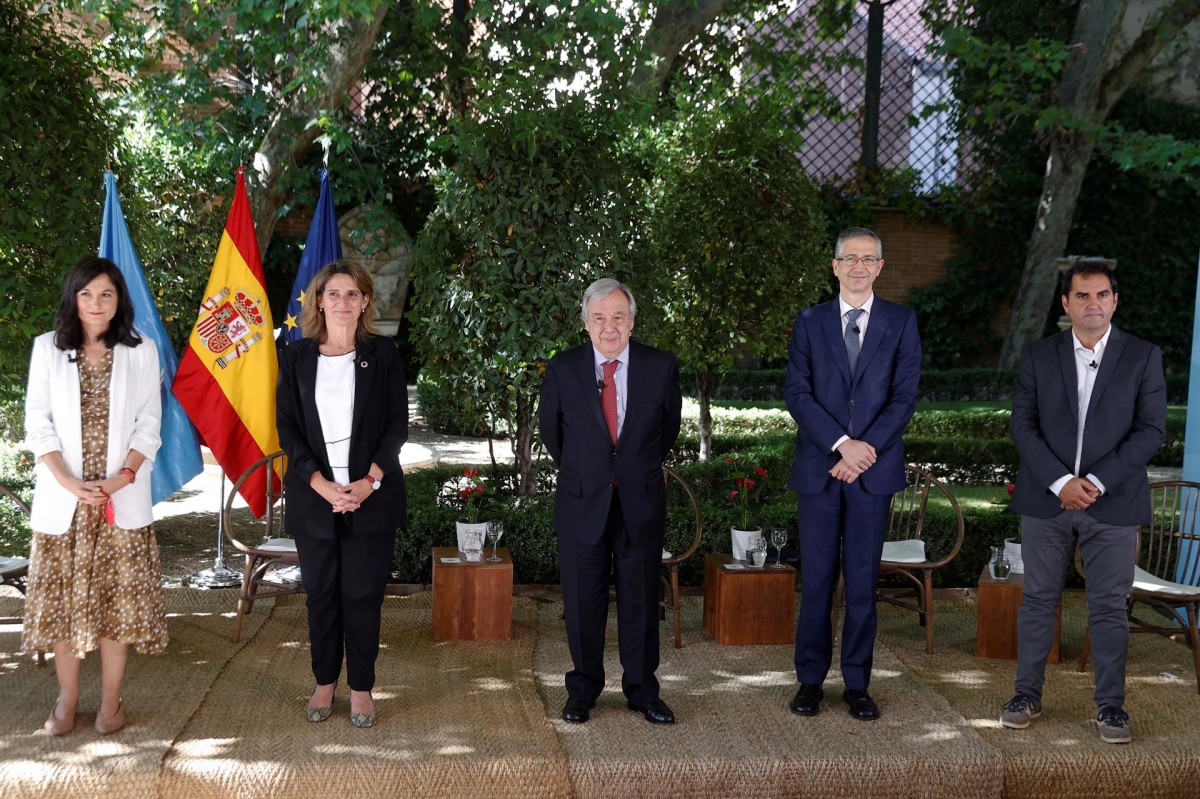The Director of the Instituto de Física de Cantabria and co-author of the IPCC's Sixth Assessment Report, José Manuel Gutiérrez, has participated in 'Climate action for a green recovery' panel, organized by the Ministerio de Transición Ecológica y Reto Demográfico
July 6th, 2021
José Manuel Gutiérrez, Director of the Instituto de Física de Cantabria (IFCA, CSIC-UC) and co-author of the
6th Assessment Report (AR6) of the
Intergovernmental Panel on Climate Change (IPCC) has warned that
"we must act now" against climate change, because "there are a number of points of no return, some of which have already been crossed, but others can be avoided if we do our homework and intensify what some governments have already done like ours". "We have to limit emissions now", he said.
Gutiérrez explained the mission of this report, in which 30 coordinators are participating, and which is based on "providing information to governments to, over a period of 8 years and in 12 chapters, portray how climate change is today, what has happened and where we are going", he explained. "From science there is a clear message of what needs to be done", there is no doubt or uncertainty. "It gives us satisfaction to be able to give these tools to politicians so that they have information with which to act", he reiterated.
In this 6th Assessment IPCC Report, which will be published in August, a new dimension has also been addressed: the regional dimension. Gutiérrez pointed out that previous works analyzed the data globally and, in this case, it has been possible to determine indicators at regional level for a better analysis of the problem and, therefore, a better solution to it. "We know that the average temperature of the world is changing, that we are losing ice masses at a rampant rate", but all the predictions so far "were along the lines of providing global information, in the Sixth Report we have landed at a level where governments can go a step further, continental and intercontinental", he said.
"Indicators such as heat waves, which are a current issue because of the problem in Canada, or the regional rise in sea level..., each one of these potential impacts derived from climate "now we have brought them down to a regional level, we have taken a step further in the characterization of climate", said Gutiérrez.
IPCC's 6th Assessment Report
The document analyzes more than 14,000 publications on climate change to determine the progress and scope of this phenomenon, and it broadly shows, confirmed Gutiérrez, that it is now "a very big problem" and that depending on when society decarbonizes there may be different scenarios. "This report states that we are the main cause of that problem and in the future, depending on how much we decarbonize, there are scenarios that scientists can draw, as will be our world if we stop warming a degree and a half or two, or what will happen if we return to 3 degrees", he warned. These results, explained IFCA's Director, are obtained by consensus: "A reliable consensus report on climate change is issued, we do not express our opinions, we synthesize the information as close to reality as possible. And finally "a document emerges with which we provide a basis for politicians to act", he said.
Other agents involved
Gutiérrez also mentioned, during his speech, the work carried out by the IPCC, where "we have a very active activity in terms of dialogue with all the social agents, there are non-governmental organizations that are observers, they communicate their vision to us and this is taken into account in the report so that climate change information is plural". He also referred to the role of young researchers working in the Group: "There is a positive discrimination towards young people, 10% of the authors are scientists under 30 years of age and this makes the dialogue richer,
we must try to get young people to reach positions of responsibility", he said.

Participants in the Climate Action panel in Madrid
High-level panel
A few weeks before the presentation of the first chapter of Sixth Assessment Report of the Intergovernmental Panel on Climate Change (IPCC) and with an eye on the upcoming COP26 in Glasgow, the Ministerio de Transición Ecológica y Reto Demográfico organized this high-level panel entitled
Climate Action for a Green Recovery on July 2 at Palacio de Zurbano, in Madrid. IFCA's Director was accompanied at the event by the United Nations Secretary-General, António Guterres; Pablo Hernández de Cos, Governor of the Banco de España; and Teresa Ribera, Fourth Vice-President of the Spanish Government and Minister for Transición Ecológica y Reto Demográfico. The event was moderated by Emilia Pérez, journalist and Economy Director of the EFE Agency. The meeting served to put on the table the need to strengthen the anticipatory management of climate change's impacts by different social agents and in light of scientific projections. "When scientists can help society to make decisions, we feel fulfilled and participating in this type of event is one of those functions," said Gutiérrez.
